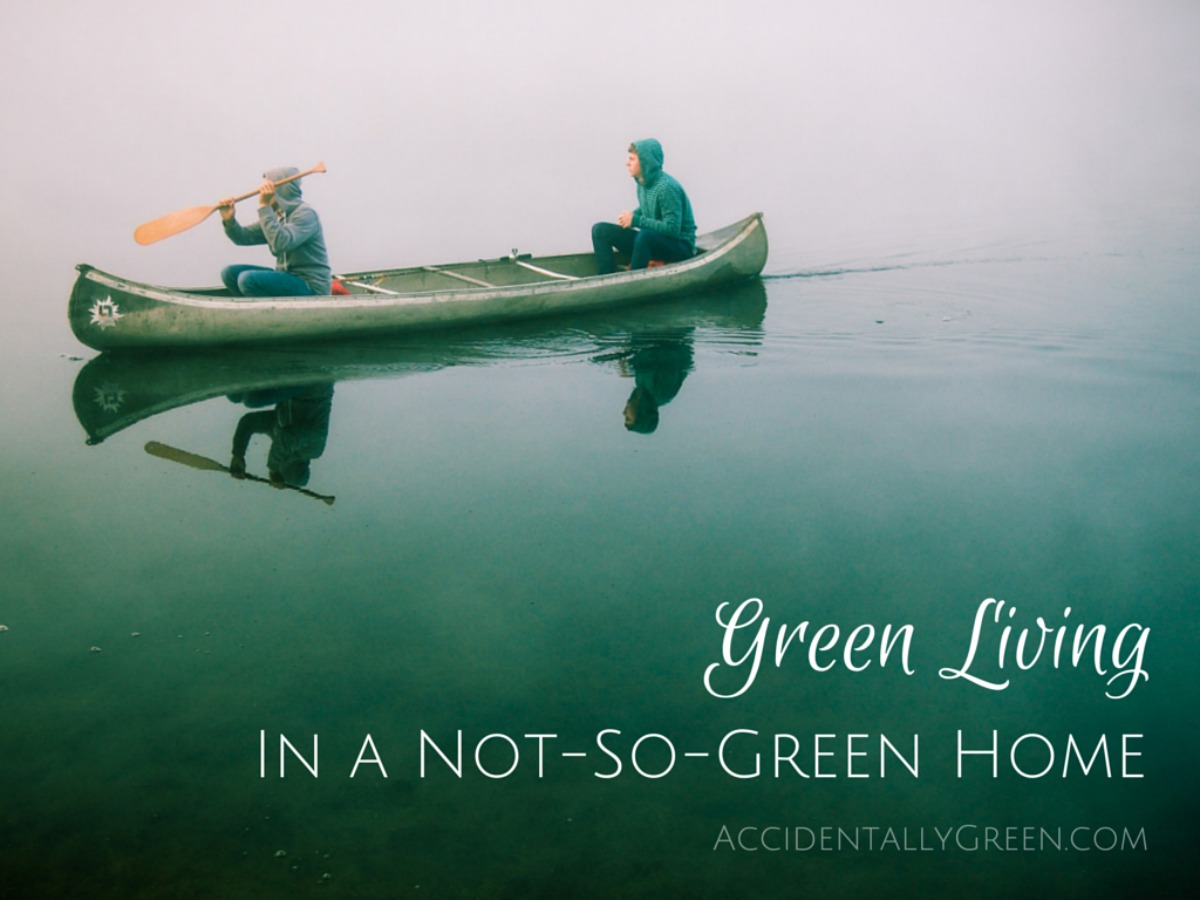Is it possible to embrace green living in a not-so-green home?

Earlier this year, as my husband Aaron and I lingered over dinner with our friends, Aaron asked the question: “On a scale of 1 to 10, how green are you? And how green would you like to be?”
Before giving answers, we discussed what we thought a green life meant:
- Not using disposable products like Styrofoam or plastic grocery bags;
- Choosing to use family cloth;
- Composting and growing much of your own food;
- Opting for organic food and products instead of processed, convenience food;
- Using alternative forms of energy and fuel;
- Trying to live as free from synthetics as possible.
When we finally were ready to rank ourselves, I decided I was about a 5 or 6, and I would be comfortable going to an 8 or 9.
My husband? He ranks himself as a 3 or 4, and would be willing to go to a 5. If he wasn’t married to me, he would probably be a 2.
Unequally yoked
I’m really glad that my marriage is not based on green living, because Aaron and I would be in big trouble.
What our marriage does continually teach me, though, is that it can be tricky to live a green life when not everyone in your home is on board. Sometimes, you may be the only person in your home who is trying to be a good steward of the environment.
Guess what? That’s OK. That’s just the reality of life.
Instead of fretting – or fighting – about the differences, just keep making your green decisions as best as you can. It’s what I do each day. On bigger issues, like treating your lawn with chemicals or buying energy-efficient appliances, I can only give my green advice and hope that we can come to a mutual (and, ultimately, environmentally friendly) decision.
And when not-so-green choices are made, keep making green choices in other areas.
My recent green battle
Last week, I was reminded how green living isn’t always easy or convenient. In fact, sometimes green living means a lot of extra work.
As my husband and I prepared to host a multi-course Passover Seder for 16, Aaron encouraged me to buy some fancier, heavy-duty disposable plastic plates so clean up would be a lot quicker and easier. He truly wanted to lighten my load, and I considered the option for a day; the thought was very tempting.
Then I remembered Accidentally Green, and thought about how un-green it would be to host our friends on plastic, disposable plates. I didn’t want to be hypocritical, even if our friends wouldn’t have minded. So I washed dishes after the feast. Despite my dishpan hands, I had a good visit with my husband while I washed and he dried.
On that night, green living wasn’t convenient. It added a lot of time and effort on my part — but it wasn’t burdensome.

What’s important?
You may love green living and analyze your daily decisions based on sustainability and eco-friendliness. But it’s important to remember that green living doesn’t have to be THE most important factor in your life. In fact, it shouldn’t be.
Rather, try to make as many green choices as you can, but don’t let green living consume you. Life is entirely too short to obsess over things that don’t hold an eternal value.
In your home, are you green or not-so-green? Does anyone share your interest in green living?
Latest posts by Hilary Kimes Bernstein (see all)
- The Day I Realized Healthy Choices Don’t Guarantee Health - July 21, 2015
- Avoid Synthetic Bug Sprays with All-Natural Repellents - July 16, 2015
- The Day I Learned I Could Cook Real Food - July 13, 2015

Leave a Reply